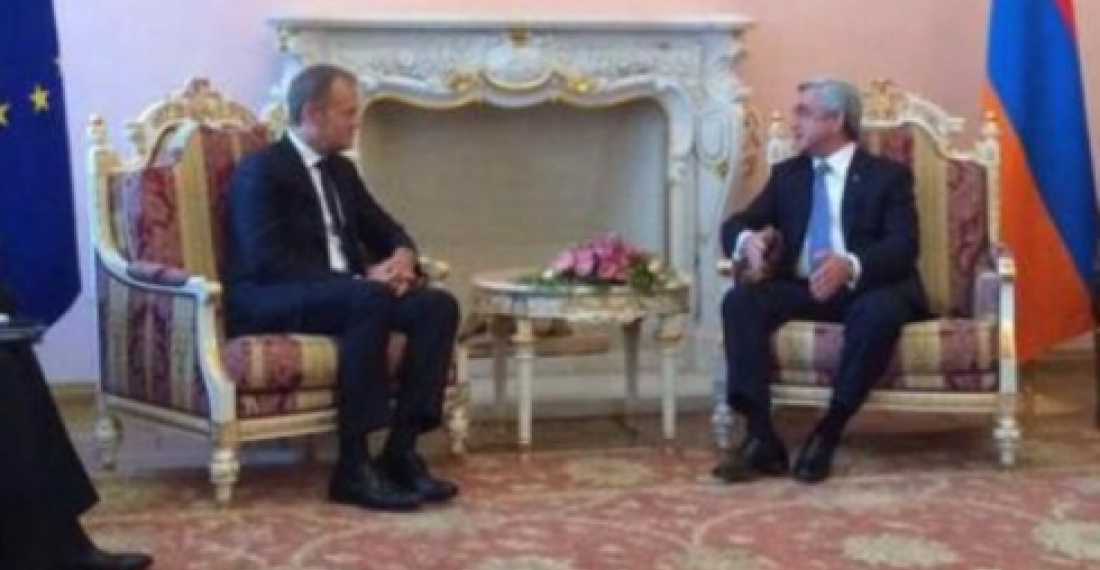Президент Европейского Совета Дональд Туск находится с визитом на Южном Кавказе для обсуждения с руководителями стран этого региона их отношений с Европейским Союзом и актуальных международных вопросов.
В понедельник Туск встретился в Ереване с президентом Армении Сержем Саргсяном. После встречи Туск заявил: "Армения решила не использовать возможность ассоциации с ЕС, включая соглашение об углубленной и всеобъемлющей свободной торговле. Это выбор, который Европейский Союз полностью уважает. Мы по-прежнему готовы углубить наши отношения, работая вместе над открытием рынков, над продвижением демократических реформ, экономическим ростом, региональной интеграцией, над построением лучшего бизнес-инвестиционного климата и устойчивого развития. В кратце обширная повестка реформ".
Президент Европейского Совета также говорил о конфликте в Нагорном Карабахе. Он сказал, что "негативные тенденций за последнее время стали причиной для беспокойства". Президент Европейского Совета добавил, что "мирное разрешение этого конфликта остается приоритетом для Европейского Союза. Европейский Союз поддерживает переговоры, направленные на урегулирование конфликта во главе с Минской группой ОБСЕ. Мы поддерживаем дальнейший диалог между Арменией и Азербайджаном, в том числе на самом высоком уровне - на вашем уровне г-н президент важно строго соблюдать прекращение огня, проявлять сдержанность на действия и заявления, а также создать атмосферу, способствующую прогрессу в урегулировании конфликта".
Дональд Туск завершил свое выступление, сказав, что в этот год решающий для будущего отношений между Арменией и Европейским Союзом.
Туск также намерен посетить Грузию и Азербайджан.
источник: commonspace.eu по материалам пресс-службы Президента Европейского Совета.
фото: Председатель Европейского Совета, Дональд Туск с президентом Армении Сержем Саргсяном в Ереване, 20 июля 2015.






